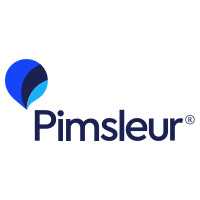There's No Babbel Chinese But Here Are Some Better Options
 Written byZoe Mei
Written byZoe Mei- Read time3 mins
- Comments0

There is no Babbel Chinese version yet despite there being high demand for it from Mandarin learners.
As one of the most popular and well-marketed language apps, Babbel has been extremely successful with other major languages, but hasn’t broken into the East Asian language market yet.
You can see this Babbel review or Babbel vs Duolingo comparison to learn more about the app.
As for Chinese, the good news is that despite there being no Babbel Chinese yet, there are some fantastic alternatives available. I’ve listed a few of the best ones below, but you can find my more comprehensive list of Chinese courses here.
1. Rocket Chinese

Rocket Chinese (both web and mobile app) as a Babbel Chinese alternative is definitely suited to the structured learner type. If you’re looking for a straight progression from the basics (incl. reading and writing Chinese characters) up to to advanced level content, you’ll enjoy it.
This one’s always been the top of my recommendations for Chinese learners (see this Rocket Chinese review).
Of course, you don’t have to learn in a straight path and can choose your own path if you prefer.
The course is primarily made up of podcasts that teach Chinese in a fun, clear and relaxing way but there also natural dialogues and plenty of other content delivery styles within the courses. The 3 levels cover all language skills equally well, and their inbuilt voice recognition is very accurate (it uses one of the best speech recognition technologies available).
For a solid, high quality Babbel Chinese alternative, this is my first choice.
2. ChineseClass101

ChineseClass101 is a first-class, online resource for learning Chinese (especially listening comprehension). It’s definitely very different to the style you see in Babbel but an excellent substitute.
ChineseClass101 uses podcast lessons to teach Chinese. Lessons are suitable for beginners through more advanced levels, with content being regularly updated.
The instruction not only includes listening skills but also incorporates essential vocabulary and grammar with loads of other useful features.
The best part about ChineseClass101 is that it’s very inexpensive (cheaper than Babbel in fact).
3. Pimsleur Chinese

Everyone’s heard of Pimsleur by now. They also offer Chinese.
Pimsleur is an audio-only, SRS (spaced-repetition) language course so it’s very different to Babbel in its approach.
The lessons focus on practical vocabulary and expressions one might need in various scenarios. This includes greetings, common phrases, and vocabulary you might need when visiting China or Taiwan.
The Pimsleur method prepares you for the necessary Chinese you need to get by in your travels in a short period of time (see this Pimsleur review).
You have the option of buying the course outright or subscribing online as you would with Babbel Chinese (very inexpensive option).
4. Mondly Chinese

Mondly is a fairly new concept for Chinese and many other languages.
It’s quickly becoming a close contender to Babbel and uniquely offers VR (virtual reality) learning as well.
Mondly is quite similar in style to Babbel so might be a great alternative option for those wanting Babbel Chinese.
It’s a beautifully-designed web app and a pleasure to navigate the course content.
Available to use as both a web and mobile app.
Despite there being no Babbel Chinese, you still have great alternatives
So I hope that helps.
I also can’t end this without recommending italki for Mandarin Chinese lessons. There are some amazing teachers on there at extremely low hourly rates.
Definitely check out Glossika too which has a Mandarin Chinese package and was created by a fluent Mandarin expert.
In addition, there are free alternatives to Babbel like Duolingo (the closest in style) and Memrise for learning Chinese vocabulary.
 Grab the link to this article
Grab the link to this article